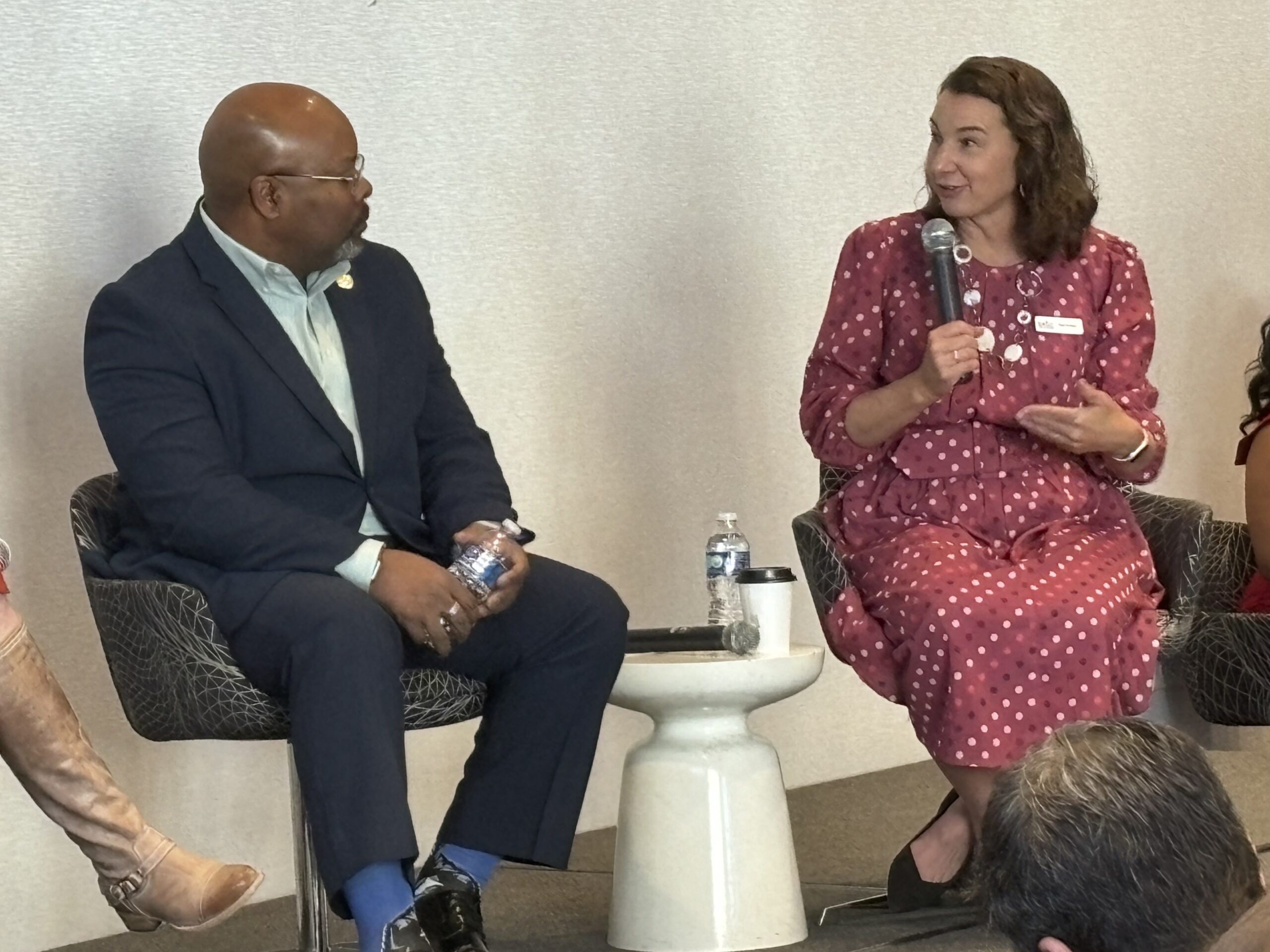
Introducing FORWARD: From Polarization to Progress
We need systems and people who can honor the humanity in people and find common ground for the sake of supporting and improving public education.
Public education, like many areas of our society, is facing a challenging high-conflict, polarized environment. Superintendents find it difficult to make sustained progress on their initiatives because they are navigating divisive semantics, culture wars and intense ideologies that often have very little to do with quality learning for students. Legislatures, board rooms and town halls devolve into shouting matches, superintendents lose their jobs too easily and quickly, and teachers are often fearful of teaching anything that might engage students in questioning their assumptions or to think more critically.
Because we are all different, disagreement is natural, and exposure to and understanding of multiple, diverse perspectives leads to better problem solving. So we need to learn to do it right!
FORWARD will be developing several areas of work focused for school system leaders (K12 and higher education), education policymakers, and interested organizations in support of the principles of productive engagement and quality decision making.

FORWARD’s Work
SUPPORT FOR SUCCESS
We will support future and current district superintendents, school board members and state education administrators ,and other key leaders with professional development that will include specific strategies of effective relationship building, problem solving and conflict management.
This type of support will help leaders create better district environments for getting critical work done so that teachers and principals can better serve each and every student. Current services in this strategy are:
- 1:1 and/or team coaching of superintendents, school board members, education administrators and other leaders
- Leading workshops, book studies, problems of practice and discussions regarding productive conflict
- Speaking engagements to learn about polarization and ways to move beyond it
GATHER TO LEARN
The gather to learn work strand will serve to intentionally bring differing opinions, perspectives and views together in both formal and informal ways to facilitate and model how we can rebuild respect and dialog to make progress on behalf of our collective future -- our students. Gatherings will be used to explore new ideas, understand the complexity of issues, and coach each other through challenging political situations. Activities will look like:
- Gathering to learn about selected education topics
- Learning from successful examples of conflict resolution
- Hosting convenings with guest speakers on successfully navigating high conflict situations
- Creating networks of education leaders with a desire to navigate politics in a different way
PARTNER FOR ACTION
There is substantial need for multiple organizations in this space to support each other and to create a tipping point away from unproductive fighting and toward problem solving, productive politics and decision-making—behaviors that support democracy and education. We will partner with and amplify organizations and people who see through the binary, black and white answers to help the public understand the complexity of solutions in education. We will expand each other’s strengths and expertise while jointly empowering thoughtful processes and people.
Activities in this work strand might include:
- Hosting or co-hosting professional development sessions at relevant conferences
- Supporting and hosting convenings to learn from and amplify the work of other organizations doing similar work on civic dialog and finding common ground.
- Working with other leadership development and coaching organizations to lead or co-lead professional development
FORWARD Director: Dr. Katy Anthes

Commissioner of Education in Colorado from 2016-2023, Dr. Katy Anthes is widely respected for her commitment to listen to diverse perspectives and her legacy of developing solutions that are founded on productive middle ground. Continuously keeping students’ best interests as her top priority, she focuses on providing high quality expertise and support to policymakers, districts and educators working to enhance student achievement. As Commissioner, Anthes worked with the Colorado State Board of Education, the Legislature and the Governor to craft and implement a vision of education for Colorado. She led the Colorado Department of Education, an $8 billion dollar agency, dedicated to helping districts achieve great things for students. During her time as Commissioner, she served on the Council of Chief State School Officers (CCSSO) Board of Directors, the Education Commission of the States (ECS) Steering Committee, and Chiefs for Change.
Dr. Anthes led CDE from 2011 to 2023, serving as Chief of Staff, Interim Associate Commissioner for Achievement and Strategy and Executive Director of Educator Effectiveness. As the ED of Educator Effectiveness, she led CDE’s efforts to support and retain highly effective educators in Colorado. In her previous position as a partner with the Third Mile Group, Anthes led and researched major education initiatives for state, district, and national organizations on a variety of education issues. Her projects included the Colorado School Leadership Academy Board, the Expanded Learning Opportunities Commission and the evaluation of district education programs across the state.
Prior to founding the Third Mile Group, she achieved seven years of research, policy work and leadership experience at the Education Commission of the States focusing on school and district leader effectiveness. Anthes holds a Ph.D. in public policy and a master’s degree in public affairs from the University of Colorado Denver. She did her undergraduate work at the University of Oregon.



